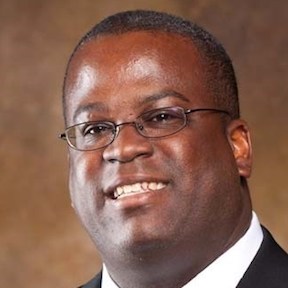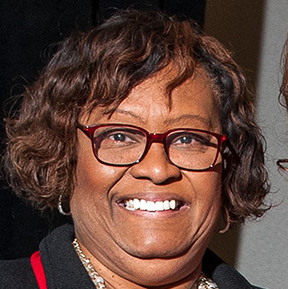 Paul Adams, associate professor in the department of chemistry and biochemistry in the J. William Fulbright College of Arts and Sciences at the University of Arkansas, has been named a Minority Access National Role Model. The honors is given to scholars who “inspire others to emulate them, and thereby increase the pool of scholars and professionals who will find cures for illnesses or solve technological problems or address social disparities.”
Paul Adams, associate professor in the department of chemistry and biochemistry in the J. William Fulbright College of Arts and Sciences at the University of Arkansas, has been named a Minority Access National Role Model. The honors is given to scholars who “inspire others to emulate them, and thereby increase the pool of scholars and professionals who will find cures for illnesses or solve technological problems or address social disparities.”
Dr. Adams earned a bachelor’s degree in biochemistry from Louisiana State University in Baton Rouge. He holds a Ph.D. in biophysical chemistry from Case Western Reserve University in Cleveland, Ohio.
 Constance Smith Hendricks, dean of Tuskegee University’s School of Nursing and Allied Health, was awarded the Mary Elizabeth Carnegie Award at the annual convention of Southern Regional Education Board’s Council on Collegiate Education for Nursing. A Selma, Alabama, native, Dr. Hendricks has held leadership positions in nursing education at several institutions, including Concordia College, Hampton University, and Kentucky State University. She became dean at Tuskegee University in January 2018.
Constance Smith Hendricks, dean of Tuskegee University’s School of Nursing and Allied Health, was awarded the Mary Elizabeth Carnegie Award at the annual convention of Southern Regional Education Board’s Council on Collegiate Education for Nursing. A Selma, Alabama, native, Dr. Hendricks has held leadership positions in nursing education at several institutions, including Concordia College, Hampton University, and Kentucky State University. She became dean at Tuskegee University in January 2018.
Dr. Hendricks holds a bachelor’s degree in nursing and a master’s degree in community health, both from the University of Alabama at Birmingham. She earned a Ph.D. in clinical nursing research at Boston College.
 Sakeena Everett, an assistant professor in the language and literacy education department at the University of Georgia, received the Alan C. Purves Award from the National Council of Teachers of English. Dr. Everett was honored for authoring the article most likely to have an impact on educational practice in the teaching of English. The article, “Untold Stories: Cultivating Consequential Writing with a Black Male Student through a Critical Approach to Metaphor,” was published in the journal Research in the Teaching of English.
Sakeena Everett, an assistant professor in the language and literacy education department at the University of Georgia, received the Alan C. Purves Award from the National Council of Teachers of English. Dr. Everett was honored for authoring the article most likely to have an impact on educational practice in the teaching of English. The article, “Untold Stories: Cultivating Consequential Writing with a Black Male Student through a Critical Approach to Metaphor,” was published in the journal Research in the Teaching of English.
Dr. Everett earned a bachelor’s degree in sociology and urban and regional studies at Cornell University in Ithaca, New York. She holds a Ph.D. in curriculum, instruction and teacher education from Michigan State University.
 Judge Damon Keith was nominated by President Johnson to the federal court in 1967 and in 1977 was elevated to a seat on the U.S. Sixth Circuit Court of Appeals. Judge Keith died in 2019. Now the Howard University School of Law will name its moot courtroom in honor of its alumnus.
Judge Damon Keith was nominated by President Johnson to the federal court in 1967 and in 1977 was elevated to a seat on the U.S. Sixth Circuit Court of Appeals. Judge Keith died in 2019. Now the Howard University School of Law will name its moot courtroom in honor of its alumnus.
The law school also has established The Honorable Damon J. Keith Endowed Scholarship Fund. Scholarships will be awarded to law students who demonstrate financial need and has a passion for social justice and serving the community. Preference will be given to students from Judge Keith’s hometown of Detroit, Michigan, and students who are first-generation college or graduate students.

